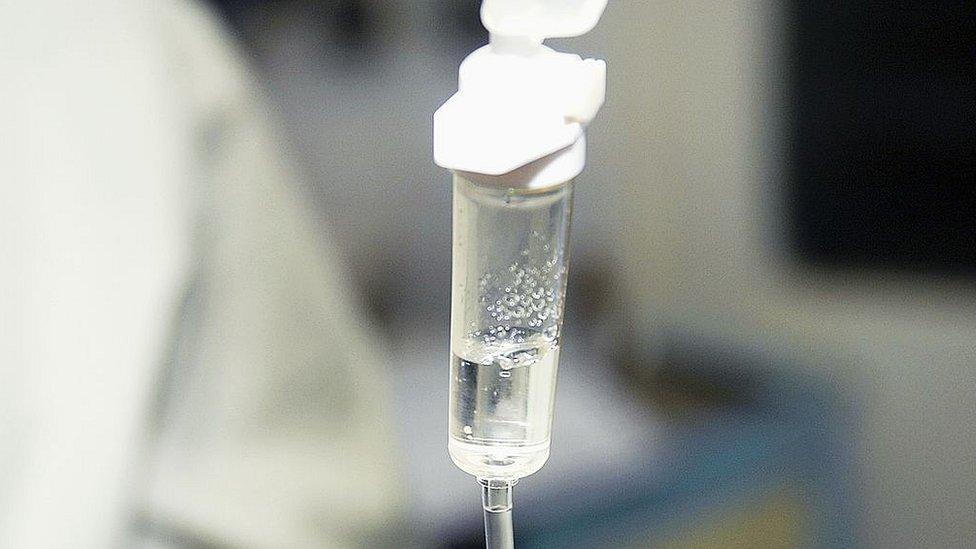Covid: The challenge in speeding up France's vaccination drive
- Published
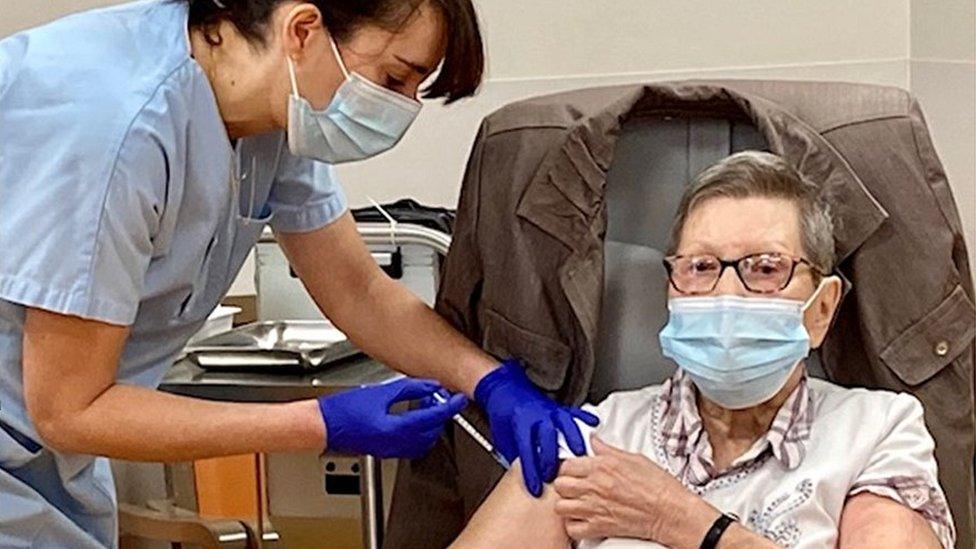
The first Covid-19 vaccination at a hospital in the city of Saint-Etienne
France has said that everyone over 75 will be able to have the coronavirus vaccine from 18 January, as part of a plan to speed up vaccinations.
The French Prime Minister, Jean Castex, said the government had been right to prioritise the most vulnerable, but admitted that France had lagged behind other countries in rolling out its vaccination programme.
The first vaccines were restricted to elderly care home residents, and required a signed consent form and a doctor's consultation before they could be administered.
But the government has faced a storm of criticism after it emerged that only 500 people had been vaccinated in the first week of the roll-out, compared to 200,000 in Germany.
Since then, firefighters, domestic carers and all medical staff over 50 have been invited to have the jab.
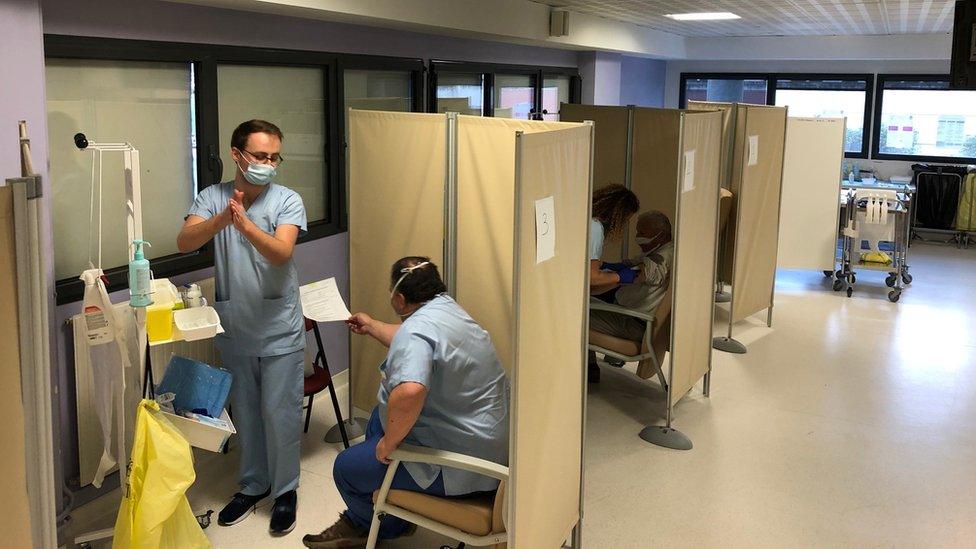
The new vaccination centre at the Saint-Etienne hospital
At one of Saint-Etienne's main teaching hospitals, the first doses of the Pfizer/BioNTech jab arrive in a bright-blue cooler bag, the size of a generous lunch box.
The new vaccination centre here is one of hundreds being set up across the country to inoculate people more quickly.
Dr Eric Alamartine, head of the hospital's kidney unit, has an irrepressible sense of humour. Surrounded by local TV cameras as he rolls up his arm to take the needle, he raises a laugh by getting out his iPhone and pretending to film them back.
Eric says that medical staff had lobbied the government to speed up its vaccination process from the beginning.
"We're dealing with a technocratic system which is not reactive enough, and wants to follow regulatory procedures without any risks," he told me. "We think it's time to take risks. We want quick decisions, not waiting for weeks for a signature."
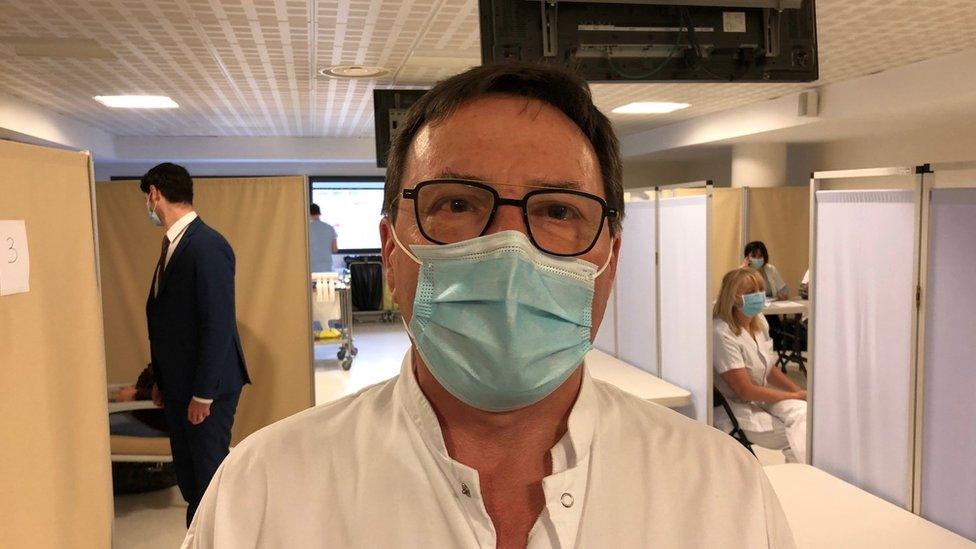
Dr Alamartine: like many in France he is frustrated over the slow pace of vaccinations
But there are reasons behind the government's caution.
Polls suggest that less than 40% of the population here is planning to take the vaccine. Younger people, who feel less at risk from Covid, are among the least likely to say they want it, along with those who disapprove of the government's handling of the pandemic more generally.
France has a long history of distrusting vaccines.
Florian Cafiero, a sociologist at the National Centre for Scientific Research, says this dates back years, to debates over vaccines for Hepatitis B and swine flu.
"It's true there is a core of people who believe in conspiracy theories," he said. "But that doesn't explain the huge distrust towards vaccines, because it's more than half the population, and more than half the population are not conspiracy theorists."
Instead, he believes trust has diminished because of repeated controversies over side-effects, and because of a general distrust towards authority.
"The current government generated a huge amount of distrust over its management of the Covid crisis, and that's reflected towards the vaccine."

More on the pandemic:
Covid vaccine safety: How does a vaccine get approved?

Marie Leclercq, a newspaper publisher now in her 40s, remembers the scandal over Hepatitis B decades ago.
It hasn't stopped her vaccinating her three children against the usual childhood diseases, nor keeping up with her own tetanus jab last year.
But she says the Pfizer vaccine has her worried, because it was developed so quickly using a new technique.
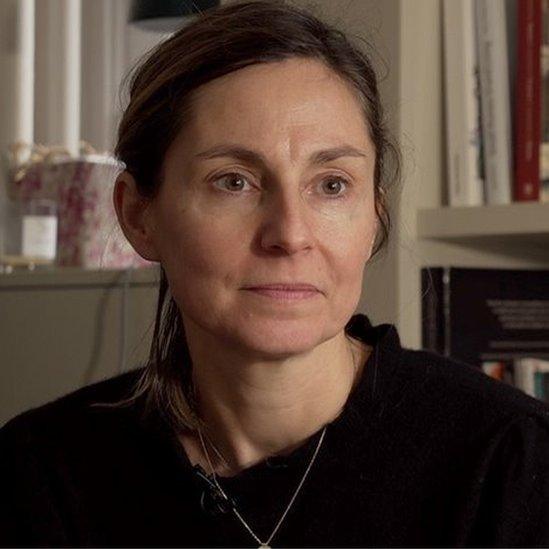
Publisher Marie Leclercq doesn't want to have the Covid-19 jab
I told Marie about the doctors in Saint-Etienne's hospital lining up to have the jab, and asked why assurances from scientific experts hadn't convinced her.
"Who today could say it's completely safe?" she said. "Maybe they could say they're 99% sure - but not 100%. Nobody could say 100%. And my concern is about the one, two, three or five per cent."
She would be more willing to consider the jab if it stopped her passing the virus to others, she said, or if there was a pressing need to have it, in order to travel, for example.
But the low numbers of vaccinations that some believed made France a "laughing stock" in the early days of the programme didn't worry her, she told me, saying that the push to speed things up now was "purely political".
The government's task now is to vaccinate the nation without alienating one set of voters, or embarrassing another.
"We are a country where enthusiasm for vaccines, even before Covid, wasn't strong," the prime minister said during his press conference on Thursday night.
These tiny vials may be endorsed by doctors, but they carry a political risk.



GLOBAL SPREAD: How many worldwide cases are there?
THE R NUMBER: What it means and why it matters
EUROPE'S LOCKDOWNS: Lockdown rules country-by-country

- Published4 January 2021
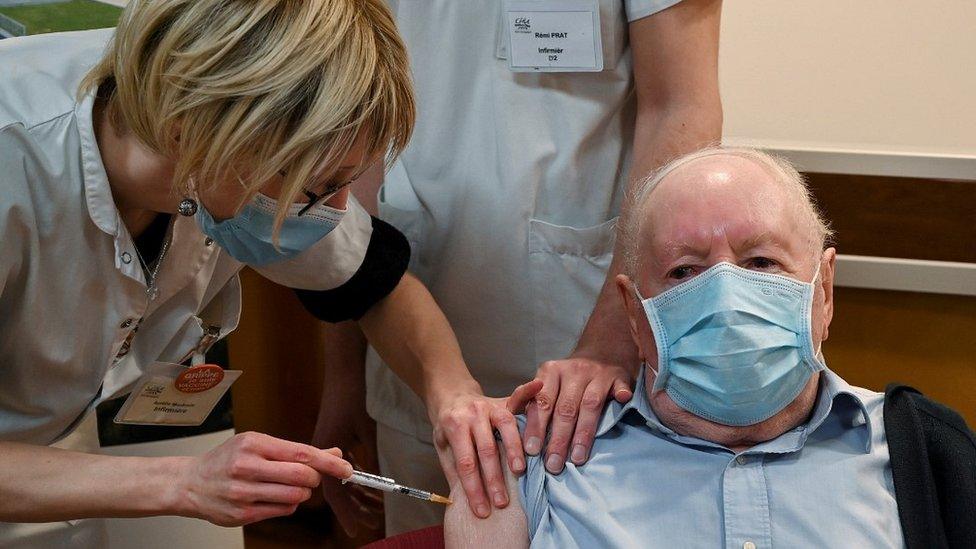
- Published3 January 2021
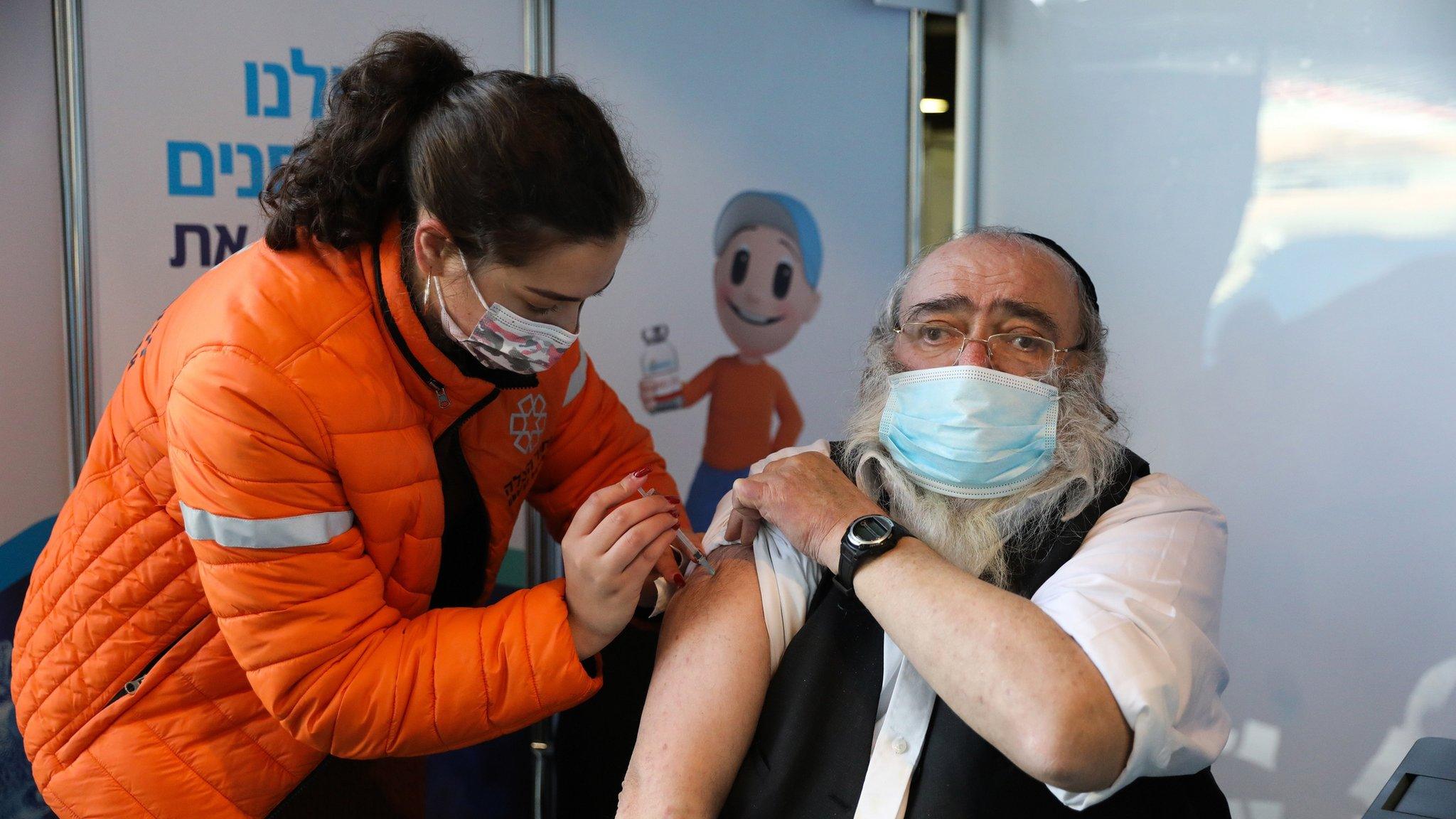
- Published7 January 2021
